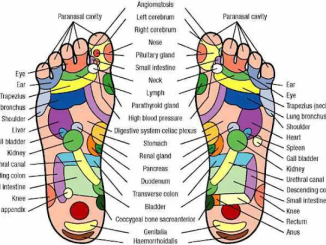Ever found yourself hesitating to ask a guest to remove their shoes, only to be told by someone, like your mother-in-law, that you’re being discourteous? You’re not alone! It’s a surprisingly polarizing topic that touches on cleanliness, cultural customs, and hosting etiquette. So, is it really rude to request this, or is it simply a matter of personal preference?
Understanding the Cultural Context of Shoe Removal

One of the biggest factors shaping opinions on this issue is culture. In many Asian and Scandinavian households, removing shoes is not just polite—it’s a must. It’s seen as a sign of respect and a way to keep homes clean and sacred. On the other hand, many Western cultures don’t place as much emphasis on this practice. Guests often keep their shoes on indoors, and requesting otherwise might be considered unusual.
Does this mean you shouldn’t ask guests to remove their shoes if it’s part of your household tradition? Absolutely not! The key is recognizing that cultural norms differ. Being aware of these differences can help you approach the topic in a way that’s both respectful and confident.
Health and Hygiene: The Case for Bare Floors
If you’ve ever looked at the bottom of a pair of shoes after a long day, you already know they’re not exactly clean. Shoes can track in dirt, bacteria, and allergens that could easily spread around your home. For families with small kids crawling on the floor or those with allergies, maintaining a shoe-free home can be a lifesaver.
Think about it: would you want the same shoes that trudged through public bathrooms or muddy sidewalks to stomp across your living room carpet? Probably not. Explaining this perspective to your guests can make your request feel less like an arbitrary rule and more like a thoughtful choice for the health of everyone in the household.
Does Hosting Etiquette Really Say No to Shoe Removal?
Traditional hosting etiquette often emphasizes guest comfort, suggesting that making guests feel at home should be your top priority. But modern etiquette acknowledges that it’s equally important to respect the host’s rules. After all, it’s your home, and you’re entitled to set boundaries.
The trick is finding a balance. Yes, you want your guests to feel comfortable, but you also want to feel comfortable in your own space. Asking guests to remove their shoes doesn’t have to be a big deal—it’s all about how you frame the request. Approach it with kindness, and most guests will happily comply.
Managing Family Dynamics: When Your Mother-in-Law Disagrees
Let’s face it: family dynamics can complicate even the simplest decisions. If your mother-in-law insists that asking guests to remove their shoes is “rude,” it can feel like you’re caught in the middle. So, how do you handle this without creating tension?
Start by having a calm conversation. Explain why this practice matters to you—whether it’s about cleanliness, cultural tradition, or personal preference. Acknowledge her perspective, but make it clear that this is a decision you’ve made for your home. Compromise can help here; for example, you could consider allowing exceptions for certain guests or occasions while sticking to your rule in everyday situations.
How to Politely Ask Guests to Remove Their Shoes
So, how do you actually ask someone to take their shoes off without sounding rude or awkward? It’s all about tone and preparation. Here are a few tips:
- Set the Tone Beforehand: If possible, let guests know about your shoe-free policy before they arrive. A simple mention in an invitation—like, “Feel free to bring comfy socks; we’re a shoe-free household!”—can go a long way.
- Provide Comfort: Make the transition easier by offering a designated shoe rack by the door and providing clean slippers or cozy socks for guests who might feel uncomfortable going barefoot.
- Use Polite Language: When guests arrive, frame the request as a preference rather than a demand. For example, “We usually ask everyone to leave their shoes at the door to keep things clean. Thanks so much!”
When you approach the topic with thoughtfulness, most people will appreciate your effort and won’t think twice about slipping off their shoes.
Balancing Tradition and Modern Practices
Incorporating traditions while respecting modern hosting practices can be a delicate dance. Traditional etiquette might emphasize catering to guests’ every need, but modern hosting often focuses on mutual respect and consideration. Striking the right balance means blending these approaches.
For instance, if you’re hosting a formal dinner party and you know some guests might find shoe removal awkward, consider making an exception for that event. But during casual gatherings or day-to-day visits, stick to your shoe-free rule. Flexibility shows thoughtfulness while still honoring your personal boundaries.
When Compromise Isn’t an Option
What if you have guests who outright refuse to take their shoes off, or your mother-in-law insists on overriding your rule? In these cases, it’s essential to stand your ground politely but firmly. Your home is your sanctuary, and maintaining its cleanliness and comfort is your right.

If someone disagrees, remind them that this isn’t about being “rude” or “discourteous.” It’s about creating an environment that works for your household. Offering alternatives—like slippers for those who prefer not to go barefoot—can help smooth over any discomfort.
Conclusion: Creating a Home That Reflects Your Values
Ultimately, asking guests to remove their shoes isn’t rude—it’s a reflection of your values and preferences. Whether you’re motivated by cleanliness, cultural tradition, or personal comfort, it’s entirely reasonable to expect guests to respect your house rules. The key is clear, kind communication and a willingness to accommodate others’ needs whenever possible.
At the end of the day, successful hosting isn’t about rigid adherence to etiquette or sacrificing your boundaries. It’s about creating an environment where both you and your guests feel respected and at ease. So, go ahead—ask politely, offer slippers, and enjoy a clean, happy home that truly feels like your own.
When she got home, she excitedly shared with her parents that she had made a new friend at school: Their surprise was evident when they saw the picture she brought with her

In the late summer of 1997, amidst the bustling halls of a Cape Town maternity hospital, Celeste Nurse awoke to a nightmare. Her infant daughter, cradled closely in her arms just moments before, was now inexplicably missing. A woman disguised as a nurse had stealthily absconded with the child while Celeste dozed off, leaving behind a void that would haunt the Nurses for two decades.
Year after year, they commemorated their daughter’s birthday with bittersweet celebrations, clinging to hope amid the anguish of uncertainty. Then, in a remarkable turn of events in 2015, a glimmer of possibility emerged. With the arrival of a new addition to the Nurse family, named Zephany, hope stirred once more.
Zephany bore an uncanny resemblance to their long-lost daughter, sharing not only her features but also her birthday. Astonished by this revelation, the Nurses wasted no time in seeking confirmation, enlisting the aid of authorities for a DNA test. The results validated their deepest yearnings – Zephany was indeed their missing child.
“DNA is a truth teller. It affirmed what our hearts always believed”, reflected Celeste Nurse on the profound moment of reunion. However, for Zephany, then known as Miché Solomon, the revelation unraveled her world. Despite her birth certificate asserting her origin at Retreat Hospital, records of her birth were conspicuously absent.
As the legal proceedings unfolded, Miché grappled with the revelation that Lavona Solomon, the woman she had always regarded as her mother, stood accused of kidnapping and fraud. Lavona professed her innocence, claiming she had received the baby from a woman named Sylvia, an assertion unsupported by evidence.
Ultimately, Lavona received a ten-year sentence for her crimes, leaving Miché to navigate the complex terrain of her dual identity. Reunited with her biological parents under the guidance of compassionate social workers, Miché wrestled with conflicting loyalties.
“It was a battle waged in the recesses of my mind and heart”, confessed Miché, torn between the families vying for her allegiance. Despite her reunion with her birth parents, Miché found solace in returning to Michael Solomon, the man she still considered her father, following her parents’ separation.

Yet, the reconciliation was fraught with challenges as Miché struggled to reconcile her two identities, opting to retain her given name rather than reverting to Zephany. While she maintains occasional visits to Lavona in prison, Miché endeavors to forge ahead, embracing the truth that, though painful, liberated her from a life built on deceit.
“I am both Miché and Zephany, a synthesis of two worlds”, she declared, embracing the complexities of her past while charting a course towards a future defined by authenticity and forgiveness.



Leave a Reply